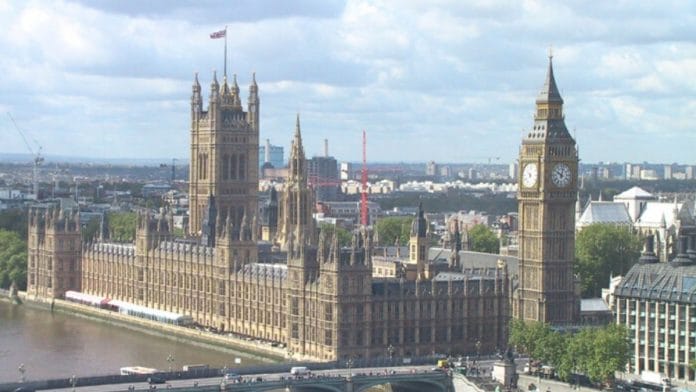Bengaluru: The United Kingdom has launched the world’s largest randomised clinical trial for drugs to treat Covid-19. Called RECOVERY (Randomised Evaluation of Covid-19 Therapy), the nationwide trial aims “to identify treatments that may be beneficial to adults hospitalised” with the disease.
The UK has recorded over 1 lakh cases of Covid-19, including Prime Minister Boris Johnson and Prince Charles (both have now recovered).
The trial has already enlisted around 5,300 people undergoing treatment at 165 hospitals under the National Health Service (NHS), the government-funded healthcare system. Similar trials in the US and Europe involve a few hundred patients.
The study will be conducted by researchers at the University of Oxford alongside doctors from different hospitals.
The RECOVERY programme was designed for quick execution, and results from the trial are expected as early as June, the website set up for the trial states.
Also Read: Foreign dream will have to wait as Covid-19 layoffs in US cast shadow on IIT, IIM placements
The treatments to be tested
The trial involves testing and comparing the efficacy of certain drugs, as well as offering no treatment. The treatments to be tested include the HIV combination of lopinavir-ritonavir, the anti-malarial hydroxychloroquine, the popular antibiotic azithromycin, and corticosteroid dexamethasone, which is used to treat inflammation.
All these drugs are being used world over on a trial basis, structured and unstructured, especially in cases of “compassionate use”, where the patient has no treatment available and is likely to die.
The outcome of the British trial will be measured in terms of duration of hospital stay, need for ventilators, and kidney damage.
The lopinavir-ritonavir combination has shown to be effective in lab conditions against the coronaviruses that cause Severe Acute Respiratory Syndrome (SARS) and the Middle East Respiratory Syndrome (MERS), with the side-effects of diarrhoea and nausea. Dexamethasone is an immunomodulator that can regulate the immune system’s reaction, with side-effects of hyperglycaemia and sleep troubles.
Hydroxychloroquine has also shown to be effective in labs but comes with the risky side-effect of cardio toxicity and irregular heart beats. The antibiotic azithromycin has shown the same heart-related side-effects.
There are also plans to include an interleukin-6 antagonist called tocilizumab, an immunomodulator used to treat rheumatoid arthritis-induced cytokine storms or overreactions of the immune system where the body starts to attack itself.
There are also discussions about including convalescent plasma therapy, where blood from recovered individuals, which contains antibodies against the novel coronavirus, is transfused into patients to help generate antibodies in them.
The trial is supported by a grant of £2.1 million from the UK Research and Innovation Department, the national funding agency, as wells the Department of Health and Social Care. The British government’s Medicines and Healthcare Products Regulatory Agency will ensure adequate supply of drugs.
“The RECOVERY trial will provide much-needed evidence on the best care for patients with COVID-19. The more patients that are enrolled, the sooner we will know how best to treat this disease,” said Peter Horby, professor of Emerging Infectious Diseases and Global Health in the Nuffield Department of Medicine, University of Oxford, who’s leading the trial, in a press release last week.
“We are very grateful to those patients who are participating and to the hospital and research staff who are helping us to find the best treatments,” Horby said.
Also Read: Let the young out, and India build herd immunity to beat the virus: Top epidemiologist






